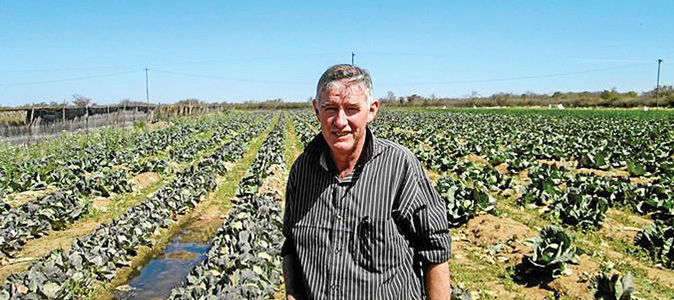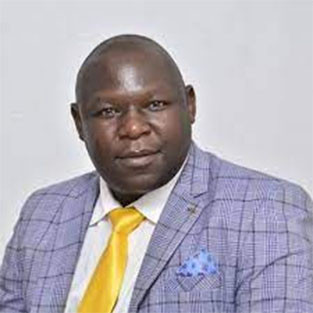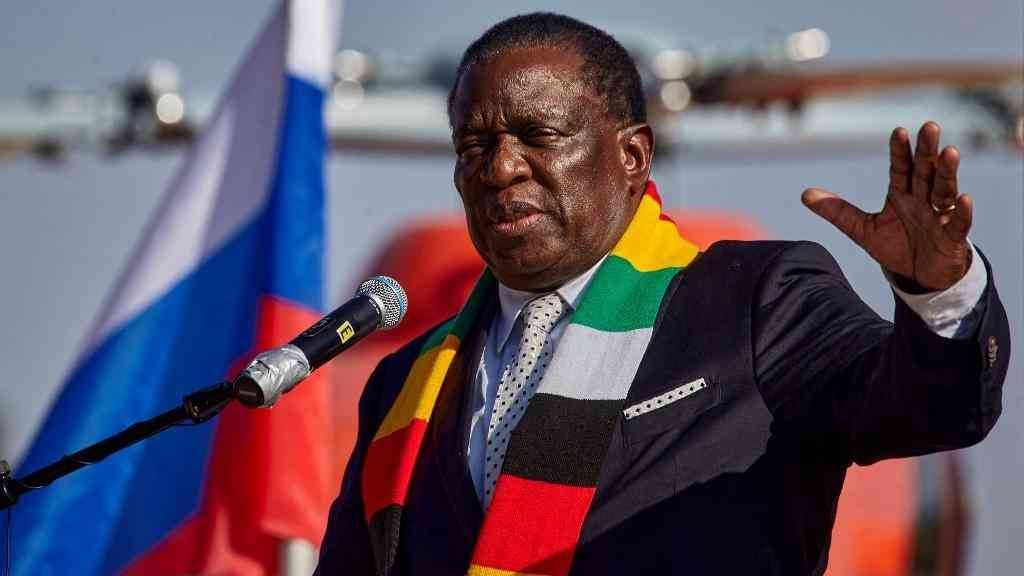
IAN Ferguson, a former government irrigation specialist, is one of the most popular white farmers in the semi-arid Beitbridge District.
BY RICHARD CHIDZA
Ferguson retired from the government in 1967 and used his pension to buy virgin land near the border with South Africa where he carved out Benfar Estates and Denlynian Farm.
From scratch, Benfear Estate grew to be a vital cog in Beitbridge’s economy, with 5 000 citrus trees and 1 000 mangoes and irrigation systems to support several hectares of land.

“The emphasis was on producing quality produce under the brand name Benfer, which was achieved by being awarded certificates of merit in nine out of 10 years for citrus exported through the South African Citrus Exchange [Outspan],” one of Ferguson’s associates said.
On the other hand, Denlynian Farm — a wildlife conservancy — became a magnet for foreign hunters attracted by its world-class conservation methods. Denlynian Farm was teeming with animals such as eland, leopard, wildbeest and giraffe.
Ferguson provided employment to hundreds of people from the impoverished district on the two properties and became a darling of the locals.
“Ian Ferguson is the longest living white resident in the Beitbridge District,” said his associate. “He is fluent in the Sotho dialect spoken in south western areas of Zimbabwe and the border with Botswana.”
- Chamisa under fire over US$120K donation
- Mavhunga puts DeMbare into Chibuku quarterfinals
- Pension funds bet on Cabora Bassa oilfields
- Councils defy govt fire tender directive
Keep Reading
However, since April 2010, Ferguson’s life has been a nightmare after Zanu PF supporters descended on Denlynian Farm.
The number of illegal settlers has been growing by day despite the fact that the property was declared unfit for human habitation. Investment on infrastructure is going up in smoke as hunting activities are no longer feasible. In April this year, Ferguson and his family were given 24 hours to leave Benfar Estates after a soldier identified as Darlington Muleya and a Nyathi claimed ownership of the property.
Since 2010, Ferguson has refused to be cowed by the invaders, taking the fight to the courts, but he says he is on the verge of giving up because of police’s reluctance to enforce the court rulings. He is now being charged with refusing to vacate gazetted State land.
Ferguson believes State Security minister Kembo Mohadi is responsible for his tribulations after the Zanu PF kingpin reportedly declared in public that he had a score to settle with the Ferguson family.
“This ,with the recent events on the citrus farm, would confirm that the police and other government agencies, particularly Lands [ministry] are being used to single out and persecute and destroy the Ferguson family for daring to use the courts to defend their civil rights,” said Ferguson.
“This evil and what would seem to be a personal agenda, unquestionably, is driven by the political heavyweight in the district, of which we have been warned and been more than aware of for some 20 years now.”
The elderly farmer, whose grandson David Pockock played for Australia at the recent rugby world cup held in England, believes he is being victimised for his principled stand. “What the actual motivation is behind this man’s agenda is a mystery to me, as I have seen him in person only twice in my life and never had any communications with him whatsoever,” he said.
“If it is because I have not obsequiously ingratiated myself with him as some people do, then so be it, as I was not brought up in that mould.
“I make no apologies for that as I would find it demeaning and would lose my dignity and self-respect and the respect of my family and friends and associates.”
Mohadi has refused to comment on Ferguson’s claims.
Ferguson’s story would resonate with many of Zimbabwe’s few remaining white farmers, who are under pressure to vacate their properties, 15 years after the controversial land reform programme.
According to the Commercial Farmers’ Union (CFU), 600 white farmers are registered with the union this year, but only about 300 are believed to be active.
Before the violent land redistribution began in 2000, CFU represented about 4 500 mainly white commercial farmers.
“We represent over 4 500 farmers but not all of our members are active farmers,” CFU director Hendrik Olivier told The Standard.
“We have begun licensing for this farming year and I can tell from our congress held last week that at least 600 had registered and of these, only about 300 are involved in one activity or another.
“The threat [of eviction] is always there. There is no security, even after the warming speech by the Vice-President [Emmerson Mnangagwa] at our congress.”
Like Ferguson, David Connolly whose farm in Figtree, Matabeleland South, was invaded by Ray Ndhlukula — a senior official in President Robert Mugabe’s office — believes the courts are the only refuge despite the frustration associated with litigation in Zimbabwe.
Conolly, whose farm was invaded in August last year and his workers evicted, has 11 pending cases against Ndhlukula at the Bulawayo High Court.
“Ndhlukula is in contempt of court and we have applied to the High Court to have it actioned. But these people think they are above the law. Even our workers have sued him for over $300 000,” Connolly said.
“There are at least 11 cases pending both from our side and their side.
“They are just playing Russian roulette with the law and State institutions because they have power.
“I have been charged with refusing to vacate designated land and removed from remand.”
Others like Philip Ranken whose farm in Centenary was recently seized by British citizen Sylvester Nyatsuro, are failing to understand why they are being victimised.
The ailing Ranken has declared that he would not be easily pushed out of his 100-hectare tobacco farm at a time when he is about to harvest the lucrative golden leaf.
“I will not be pushed off my farm by a British national,” he said recently.
“I am an African first and a Zimbabwean second. I do not want any trouble but is it too much [to ask] to be left alone to farm?
“It is all I ask for; nothing more. I am not a politician and want no trouble,” Ranken added in fluent Shona.
Meanwhile, some, like Gordon Harris, who lost his Mhangura farm, appear to have given up and are trying a new life in cities like Harare.
“I did not fight it and I am lucky that I have a rentable property, hence I can at least survive. I did a lot of improvements on the farm and hope to get some compensation,” he said.
“My colleagues have not been this lucky. They had sunk everything into farming.
“I would have prepared a little better had I been accorded the chance. But this is what happened and life has to go on.”
Olivier said most of the farmers that lost their land had not been compensated.
“We have a valuation consortium working tirelessly to come up with the figures and as long as government provides us with the modalities it wants used, then by the touch of a button we will give them the figures,” he said.
“It also depends on whether the criteria government will use will include the land or the improvements only, but we will be able to work with any of this criterion.”
Mugabe has defended the land reform programme — described as patently racist by a regional court — saying it was necessary to correct colonial imbalances.









